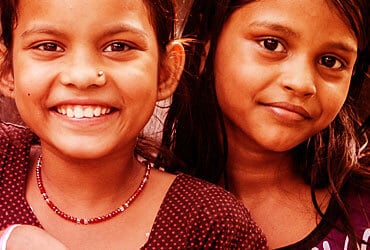What We Do
01.
— We Find & Fund
WHO is the directing and coordinating authority for health within the United Nations system. It is responsible for providing leadership on global health matters, shaping the health research agenda, setting norms and standards, articulating evidence-based policy options, providing technical support to countries and monitoring and assessing health trends.
02.
— We Build Networks
During the past decade, health has achieved unprecedented prominence as a key driver of socioeconomic progress, and more resources than ever are being invested in health. Yet poverty continues to contribute to poor health, and poor health anchors large populations in poverty. Health development is directed by the ethical principle of equity: Access to life-saving or health-promoting interventions should not be denied for unfair reasons, including those with economic or social roots. Commitment to this principle ensures that WHO activities aimed at health development give priority to health outcomes in poor, disadvantaged or vulnerable groups. Attainment of the health-related Millennium Development Goals, preventing and treating chronic diseases and addressing the neglected tropical diseases are the cornerstones of the health and development agenda.
03.
— We Strengthen
Shared vulnerability to health security threats demands collective action. One of the greatest threats to international health security arises from outbreaks of emerging and epidemic-prone diseases. Such outbreaks are occurring in increasing numbers, fuelled by such factors as rapid urbanization, environmental mismanagement, the way food is produced and traded, and the way antibiotics are used and misused. The world’s ability to defend itself collectively against outbreaks has been strengthened since June 2007, when the revised International Health Regulations came into force.
04.
— We Educate
For health improvement to operate as a poverty-reduction strategy, health services must reach poor and underserved populations. Health systems in many parts of the world are unable to do so, making the strengthening of health systems a high priority for WHO. Areas being addressed include the provision of adequate numbers of appropriately trained staff, sufficient financing, suitable systems for collecting vital statistics, and access to appropriate technology including essential drugs.
05.
— We Provide Care
Evidence provides the foundation for setting priorities, defining strategies, and measuring results. WHO generates authoritative health information, in consultation with leading experts, to set norms and standards, articulate evidence-based policy options and monitor the evolving global heath situation
06.
— We Consult
WHO carries out its work with the support and collaboration of many partners, including UN agencies and other international organizations, donors, civil society and the private sector. WHO uses the strategic power of evidence to encourage partners implementing programmes within countries to align their activities with best technical guidelines and practices, as well as with the priorities established by countries.
What We Care For!

Bringing Dreams within Reach for Children

The Keys to a New Future for Exploited Chlidren

Boys Rise to Greatness in Burkina Faso

The Children who Break New Ground

